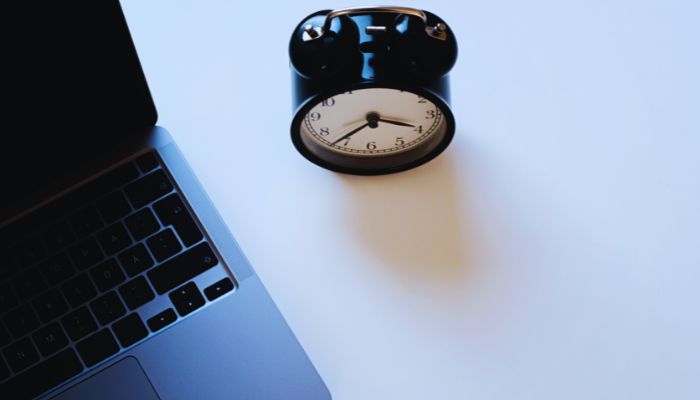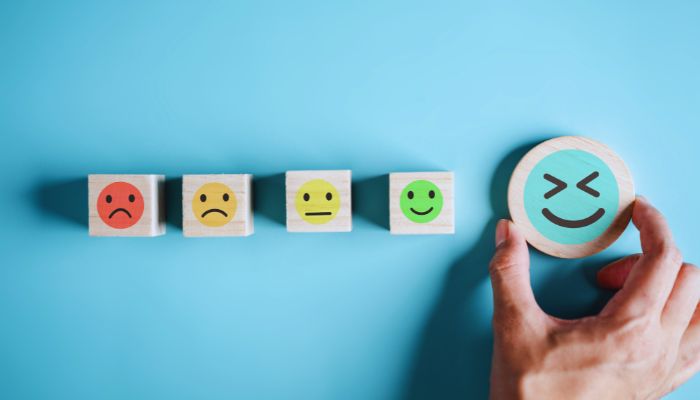Social media has become an integral part of daily life for many people, providing platforms for connection, communication, and entertainment. However, while social media can be a great tool for staying informed and connected, excessive social media use can have negative impacts on mental health and well-being. The constant exposure to idealized images and the addictive nature of social media apps can lead to low self-esteem, anxiety, and feelings of isolation. For a healthier mindset, it’s essential to set clear social media boundaries. In Part 1 of this article, we’ll explore the impact of social media on mental health and provide practical tips for recognizing the signs of excessive social media usage.
The Impact of Social Media on Mental Health
The relationship between social media and mental health is complex. While many social media platforms can foster positive interactions and provide emotional support, they can also contribute to mental health issues such as anxiety, depression, and low self-esteem. Constant exposure to curated and idealized images on social media feeds can lead to harmful comparisons between one’s own life and the seemingly perfect lives of others.
Research has shown that social media usage can negatively impact mental well-being by fostering unrealistic standards of beauty, success, and happiness. For mental health individuals who are more vulnerable to stress or anxiety, the pressures of social media use can amplify existing mental health concerns. Social comparison is a common issue on platforms like Instagram, Facebook, and TikTok, where users may feel anxious or inadequate when comparing their lives to the filtered images of others.
Additionally, the addictive nature of social media apps often leads to endless scrolling, which can result in increased feelings of loneliness, stress, and social isolation. The negative effects of excessive social media use are not only limited to mental health—constant notifications, blue light exposure from screens, and disrupted sleep patterns can also affect physical health.
Understanding the Connection Between Screen Time and Mental Wellness
Screen time has a direct impact on mental health, particularly when it involves excessive social media usage. Spending hours each day on social media platforms can lead to feelings of anxiety, depression, and emotional fatigue. The constant influx of information, coupled with the desire to stay updated, can make it difficult for individuals to disconnect and relax.
One of the key issues with excessive social media use is that it pulls people away from the present moment. When individuals are preoccupied with their social media accounts, they may miss out on real life connections and meaningful relationships. Over time, this can negatively impact mental well-being, as people become more reliant on their online interactions rather than nurturing in-person relationships.
Moreover, constant exposure to online harassment, negative stories, and divisive content can contribute to negative emotions. It’s important to pay attention to your social media habits and recognize when they are interfering with your mental well-being.

How Social Media Affects Emotional Health and Self-Worth
Social media habits can have a profound effect on emotional health and self-worth. Many people feel pressure to present a curated version of themselves online, which can create a disconnect between their digital presence and real life. This disconnect can lead to feelings of inadequacy and low self-esteem, especially when users compare themselves to others on social media platforms. The constant need for validation through likes, comments, and followers can also exacerbate feelings of anxiety and depression.
For mental health individuals who are already struggling with self-worth, social media can make these issues worse. Excessive social media use often triggers negative emotions, such as envy, jealousy, and insecurity. These feelings arise from comparing oneself to others who seem to have more success, beauty, or happiness. However, it’s important to remember that social media only shows a snapshot of people’s lives, often highlighting their best moments while omitting struggles.
Healthy social media use involves being mindful of which accounts you follow and how they impact your emotions. Following certain accounts that promote positivity, self-care, and personal growth can be beneficial for your mental health. However, if certain accounts trigger negative emotions or feelings of inadequacy, it’s best to unfollow them and limit exposure to content that harms your emotional well-being.
Recognizing the Signs of Social Media Overload
Recognizing the signs of social media overload is essential for maintaining good mental health. If you frequently feel anxious, stressed, or overwhelmed after using social media apps, it may be time to set social media boundaries. Here are some common signs that your social media use may be negatively impacting your mental well-being:
- Increased feelings of anxiety or stress: If you feel anxious after spending time on social media or notice that your mood worsens, this is a clear sign that your social media usage is affecting your emotional health.
- Constantly comparing yourself to others: Social media platforms often promote a culture of comparison, which can harm self-esteem and mental well-being. If you find yourself frequently comparing your life to others and feeling inadequate, it’s time to reassess your social media habits.
- Disrupted sleep patterns: Excessive social media use, especially before bed, can negatively impact sleep quality. The blue light from screens disrupts melatonin production, making it harder to fall asleep. Poor sleep quality can, in turn, affect both mental and physical health.
- Neglecting real life connections: If you find that you’re spending more time interacting with people online than nurturing relationships with family and friends in person, it’s a sign that your social media habits may be interfering with your real life connections.
- Constant notifications and distractions: If your phone is constantly buzzing with notifications from social media apps, it can be hard to focus on tasks or enjoy moments of calm. These constant interruptions can lead to stress and reduce productivity in your daily life.
If any of these signs resonate with you, it’s important to take a step back and evaluate your social media use. Setting boundaries can help you regain control over your time, improve mental health, and reduce feelings of stress.
Creating Healthy Boundaries with Social Media
Establishing healthy boundaries with social media is essential for maintaining mental well-being. When you set social media boundaries, you regain control over your time and energy, reducing the negative impacts of excessive social media use. Healthy boundaries allow you to enjoy the benefits of social media without letting it consume your daily life.
Setting limits on the time spent on social media platforms can help you avoid feelings of stress and anxiety. It also encourages more meaningful interactions and prevents the addictive nature of social media apps from interfering with your mental health. By being intentional about how and when you use social media, you create a healthier relationship with technology.
Practical Tips for Setting Boundaries:
- Limit screen time: Set a daily time limit for how long you use social media apps. You can use apps to track and restrict your screen time or simply set a timer for yourself.
- Turn off notifications: Constant notifications from social media apps can be a significant source of distraction and stress. Turning off notifications allows you to focus on the present moment and reduces the urge to constantly check your phone.
- Schedule social media breaks: Dedicate specific times of the day to check your social media accounts, rather than scrolling mindlessly throughout the day. This helps you maintain control over your usage and reduces the negative effects of excessive social media use.

Tips for Limiting Screen Time and Reducing Anxiety
Reducing screen time is one of the most effective ways to improve your mental health and reduce feelings of anxiety. By limiting exposure to social media platforms, you free up time for other activities that promote emotional and physical health, such as exercising, reading, or spending time with loved ones.
A digital detox can also be beneficial for resetting your relationship with technology. This involves taking a break from social media for a day or even a week to focus on real life connections and reduce the negative impact of constant social media usage. During a digital detox, you may notice improvements in your mood, energy levels, and sleep quality.
Another key factor in reducing anxiety is practicing mindfulness. By paying attention to your current habits and recognizing how they affect your mental well-being, you can make intentional changes to your social media use. Practicing mindfulness helps you stay present and prevents the constant comparison and negative emotions that often come with social media consumption.
Fostering Positive Online Interactions
Not all social media usage is harmful—when used mindfully, social media can be a source of emotional support and connection. Fostering positive online interactions is a key component of healthy social media use. By following accounts that promote positivity, personal growth, and mental health awareness, you can create a healthier social media feed that uplifts rather than drains you.
If you frequently encounter online harassment or toxic content, it’s important to set clear boundaries with those negative influences. You can unfollow accounts or block certain individuals to limit exposure to harmful content. Surrounding yourself with positivity online helps improve your emotional well-being and reduces feelings of anxiety and stress.
Another way to promote positivity is by using social media platforms to support others. Offering encouragement, sharing mental health resources, and engaging in meaningful conversations can create a positive environment for both yourself and others.
How to Maintain a Balanced Digital Life
Achieving balance in your digital life is crucial for maintaining mental and physical health. While social media is a useful tool for staying connected, it’s essential to ensure it doesn’t dominate your daily life or negatively impact your well-being. Maintaining a balance between your online presence and real life connections will help you cultivate healthier habits and reduce the risk of burnout.
Here are some strategies to help you maintain a balanced digital life:
- Prioritize real life interactions: While online interactions are important, spending time with loved ones in person should always take priority. Building strong, meaningful relationships offline helps improve self-esteem, mental health, and overall well-being.
- Engage in hobbies and activities: Instead of spending hours scrolling through social media, engage in activities that bring you joy and fulfillment. Hobbies such as reading, painting, or learning a new language provide opportunities for personal growth and reduce screen time.
- Practice self-care: Make self-care a regular part of your routine. This could involve taking a warm bath, going for a walk, or meditating. Practicing self-care not only improves mental health but also increases your ability to handle stress and anxiety.
- Be mindful of the content you consume: Pay attention to how certain accounts and content make you feel. If something makes you feel anxious, stressed, or inadequate, consider unfollowing or muting those accounts. Cultivating a social media feed that promotes positivity and well-being is key to maintaining a healthy mindset.
Conclusion
Social media has become an essential part of modern life, but its impact on mental health cannot be ignored. By setting healthy social media boundaries, you can protect your emotional well-being and reduce the negative effects of excessive social media use. Limiting screen time, fostering positive interactions, and focusing on real life connections are powerful ways to regain control over your mental health and reduce feelings of anxiety, stress, and low self-esteem. By taking these steps, you can create a more balanced digital life that supports your mental and physical health while enhancing your overall well-being.



Thanks 🌹❤️
Thanks par 😇😇
Thanks
ကျေးဇူးပါ။
Thanks 💕🌹